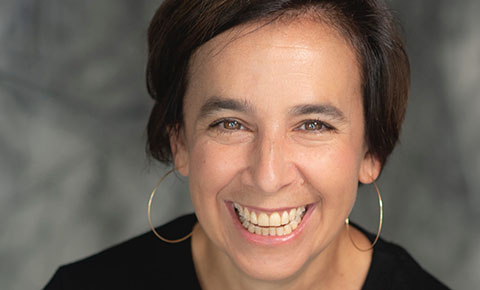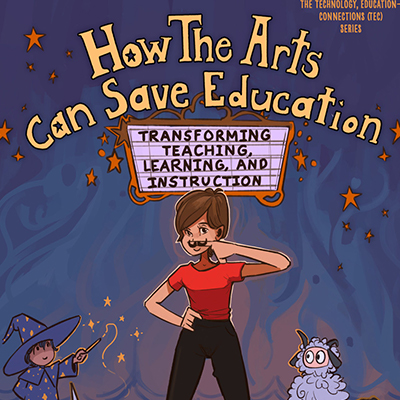How the Arts Can Save Education

Northwestern alumna Erica Halverson (SoC97, PhD05), a leading thinker and researcher on arts education, will discuss the powerful way creative processes can revitalize schools at 4 p.m. on April 13 in Annenberg Hall’s first floor Cycle Studio.
Halverson, professor and department chair of curriculum and instruction at the University of Wisconsin–Madison, studies how theater, music, visual arts, dance, and digital media tools can be used to reach students. She also runs Whoopensocker, an artist-in-residence program working in Madison Public Schools.
Her new book, How the Arts Can Save Education: Transforming Teaching, Learning, and Instruction, calls for redefining education by building learning environments with the arts at the center. She argues that the COVID-19 pandemic created the opportunity to “fundamentally reimagine education, push back against the accountability machine of standardized testing, and redesign learning environments that don’t work for most kids.”
 Halverson offers new models for learning in core subjects like literacy, math, and social studies that embrace the backgrounds of kids at all grade levels. Throughout the book, she stresses that joy is a critical part of learning and demonstrates how the arts can transform education from simply meeting standards to changing lives.
Halverson offers new models for learning in core subjects like literacy, math, and social studies that embrace the backgrounds of kids at all grade levels. Throughout the book, she stresses that joy is a critical part of learning and demonstrates how the arts can transform education from simply meeting standards to changing lives.
At Northwestern, Halverson co-directed Griffin’s Tale, a theater ensemble that creates a sketch comedy show from stories that have been sent in by schoolchildren. In 1997, she cofounded Barrel of Monkeys (now PlayMakers Laboratory) to bring similar programming to underserved students in Chicago Public Schools.
Halverson’s Whoopensocker curriculum is based on her more than 20 years of research in arts education and the learning sciences showing that creative writing and performance programs can improve students’ literacy skills, promote productive identity development, and engage young people in culturally sustaining practices.
The event is co-sponsored by Northwestern's School of Education and Social Policy and the School of Communication.